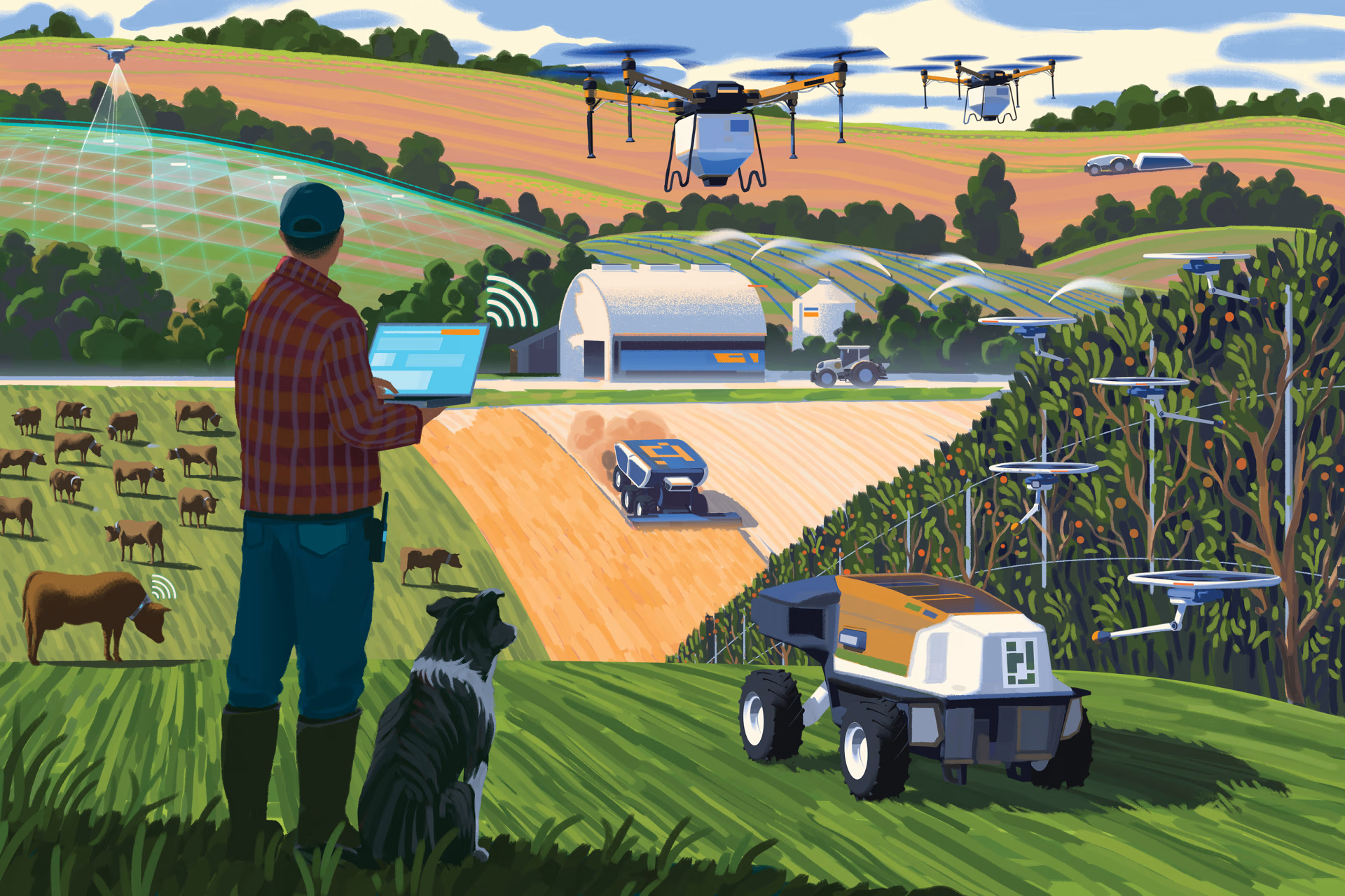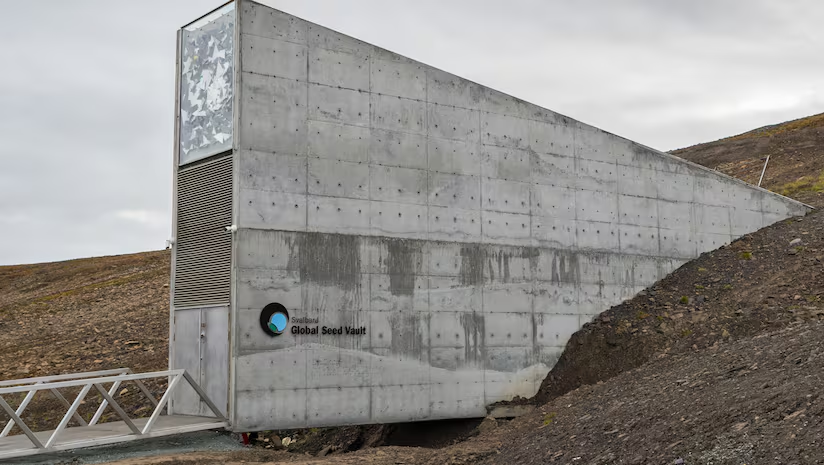Al Moutmir is an initiative of the OCP Group and Mohammed VI Polytechnic University (UM6P), launched in 2018. Its primary role is to support Moroccan farmers, particularly smallholders, in transitioning toward more sustainable, productive, and resilient agriculture by promoting the use of science, technology, and innovation. Al Moutmir encourages agricultural practices aimed at maximizing yields while preserving natural resources, notably water and soil. This program reflects a strong commitment to inclusive and sustainable agricultural development in Morocco, through the dissemination of innovative farming practices inspired by scientific and technological advancements. The Al Moutmir initiative acts as a bridge between scientific research and farmers on the ground. This approach represents a unique model of vertical integration, from fertilizer production to the farmer, and knowledge dissemination.
There are many similar initiatives to the Al Moutmir program across various countries, although none fully comparable. Several are efforts by OCP to extend its expertise to African countries and Brazil (see box). However, the Al Moutmir model is distinct due to:
- Its itinerant and free-of-charge services for farmers
- Its strong integration with scientific research (UM6P)
- Its customized fertilizer approach (NK Blend) based on field-level diagnostics
The flagship operational mechanism of the initiative is Al Moutmir Li Khadamat Al Qorb.
This is the program’s operational arm, consisting of a mobile deployment that directly reaches farmers in their regions. Key actions include:
- Proximity service: providing extension and support services to farmers;
- Mobile soil analysis laboratory: offering free and rapid soil testing via mobile labs to recommend rational and optimized fertilization: “the right fertilizer at the right dose and at the right time.” In 2019, Al Moutmir introduced SoilOptix technology for fine soil mapping;
- Technology transfer and training: agronomist engineers conduct training sessions to teach best farming practices;
- Digital advisory tools: Al Moutmir provides all Moroccan farmers with @agripedia, an agronomy knowledge platform, and the mobile application @tmar offering free scientific agronomic advice.
Components and Action Axes:
- Demonstration platforms (Agri-platforms): establishment of experimental plots co-developed with farmers to demonstrate the impact of scientific approaches on yields: soil analysis, rational fertilization, good agricultural practices;
- Direct seeding: deployment of conservation agriculture techniques to combat soil erosion, enhance water retention, and improve soil fertility, contributing to climate change adaptation;
- Digitalization: use of digital tools to disseminate scientific knowledge and technical recommendations;
- Partnerships: collaboration with the Ministry of Agriculture, researchers, distributors, cooperatives, and farmers.
INTERNATIONAL BENCHMARK
There is no fully equivalent initiative abroad, although comparable programs exist in several countries in agricultural extension, rational fertilization, and corporate contribution to agricultural development. Examples include:
- Africa (outside Morocco): OCP’s expansion and partnerships: OCP Africa deploys tailored fertilization programs in countries such as Rwanda, Ghana, and Cameroon, aiming to:
- Adapt fertilizers to soil and crop characteristics in each country;
- Train farmers in optimal fertilization practices;
- Deploy soil testing and advisory services similar to those of Al Moutmir.
- South America: Carbon agriculture
- Through OCP Nutricorps, the Carbono Verde do Araguaia project in Brazil seeks to:
- Restore degraded pastures;
- Implement sustainable land management practices;
- Reduce excessive or imbalanced fertilizer use;
- Generate carbon credits and enhance ecosystem resilience.
- India: Information and technology
- The Soil Health Card Scheme provides farmers with soil health cards to:
- Reduce excessive or imbalanced fertilizer use;
- Promote integrated nutrient management based on soil analysis, similar to Al Moutmir‘s scientific diagnostic approach.
Additionally, similar initiatives worldwide are led by:
- National research centers managing demonstration platforms and extension services;
- International organizations like the FAO working on regional soil fertility programs;
- Private agribusiness firms offering advisory services (often paid) to optimize input use.
Key Results (Recent Harvests, 2024-2025)
Demonstration platforms applying optimized technical protocols based on soil analysis and rational fertilization have delivered strong results:
- Cereals: yield improvement of +21% to +23% and profit gains of +33% to +54%;
- Legumes: yield improvement of +26% to +33% and profit gains of +33% to +54%;
- Direct seeding: yield increase up to 20% compared to conventional techniques.
These results confirm the value of tailored fertilization based on real soil needs, enabled by mobile soil labs and the Smart Blender for customized fertilizer production.
Program Expansion and Coverage
The Al Moutmir program continues to grow and diversify.
Geographical coverage: deployed across many regions of Morocco, with targeted action in over 24–28 provinces and more than 120 localities.
Demonstration platforms: over 1,100 platforms deployed in the 2024-2025 season alone, covering cereals and legumes, with thousands established since launch for major crops (cereals, legumes), arboriculture (e.g., olives), and horticulture (potato, tomato, onion).
Direct seeding: priority axis addressing climate change. For 2023-2024, the objective was to expand direct-seeding areas by an additional 11,500 hectares, bringing total coverage to more than 35,000 hectares across 130+ localities and 26 provinces since inception.
Target crops: strategic crops including cereals, legumes, arboriculture, and horticulture.




